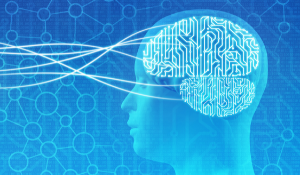
First Published: 09 November, 2019
It’s not marketing rocket science to say that it starts with the customer when talking CX and that knowing what drives your customer's behaviours will enable you to make more informed decisions to improve the customer experience.
So it goes without saying that you need to understand your customer, like really understand them...but how many of us actually do?
Many organisations think that the customer journey starts with the first interaction your customer has with your organisation, but when you apply a little behavioural science to the mix, you start to see from the customers perspective and find out that the journey happens long before that, usually when they first realise they have a problem that needs to be fixed.
There are key drivers of human behaviour and understanding how these apply to the customer journey is the difference between giving your customer what they wanted and what you thought they wanted.
Colleen Ryan, Partner, TRA and facilitator of our upcoming 1/2 day workshop in Behavioural Science, touches on the key drivers below;
People have many layers of consciousness which switch on and off in a largely involuntary way. Much of what we do is at the unconscious level (1), then we have a series of pre-learned habits that we execute on autopilot (2), when forced to make a new decision we adopt pre-wired and learned rules of thumb (cognitive biases will be covered in the workshop along with how to leverage them) to reduce the effort of decision making but that do not necessarily improve the quality of decision making (3). And the fourth level is a more rational and considered level of consciousness but even that doesn’t escape the grip of our emotionally driven cognitive processes (4).
Knowing what makes people tick, learning from the growing body of knowledge from the cognitive and behavioural sciences is at least an equally important tool to have to improve the customer’s experience.
Human beings don’t see the effort that companies put into improving customer experience in quite the same way that the company does. Why? Because we know how people’s brains work, how they perceive the world and how they behave and that tells us how to develop experiences that align with these behavioural traits.
The company’s journey is not the customer’s journey because emotion plays such a big part in how we perceive the world and how we lay down the memories that guide our future behaviour and decision making. Understanding how memories are made and subsequently triggered is a powerful tool for customer experience marketers.
Marketers can make the memories that they want customers to have but can that be done with an entirely seamless frictionless experience – often not. Learn how to use friction positively to make the memories that will bring customers back to your experiences.
Applied behavioural science can teach us many ways to understand and guide behaviour to achieve our goals, no matter whether that is to make better social choices, decide between competing brands or select from options offered by a service provider.
An overarching principle, however, is that everything people do is influenced by context – whether that is micro context such as framing, priming or anchoring (the workshop will cover the differences between these) or macro context which includes social endorsement and referencing.
Plus the importance of context means that every choices or behaviour is made relative to alternatives so understanding this again from a micro-level (brand choice architecture will be covered in the workshop) or a macro level.
There is no such thing as no context so marketers need to both understand the context that they cannot control and create the context that they can control.
Applying these key drivers to your journey mapping can improve the quality of interactions and build brand recognition as a customer-centric organisation - leading to overall business success, and customer loyalty.
To find out how to apply these and more drivers of human behaviour to your customer journey maps, sign up to our 1/2 day workshop in Behavioural Science for Customer Journeys!

Contact us if you have any suggestions on resources you would like to see more of, or if you have something you think would benefit our members.
Get in TouchSign up to receive updates on events, training and more from the MA.
